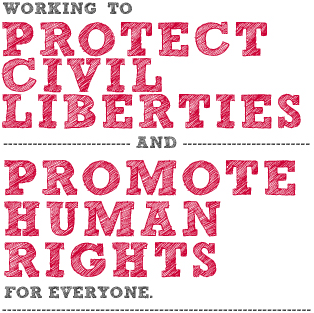Today is
Human Rights Day
Editing by Carolyn Bennett
“The very essence of human rights is the equal dignity for
everyone,” says United Nations Special Rapporteur on extrajudicial, summary or
arbitrary executions Christof Heyns.
 he future of human rights lies in our hands.
he future of human rights lies in our hands. We must all act
when human rights are violated. States as well as individuals must take
responsibility for the realization and effective protection of human rights.
 |
| Iraq |
 |
| Refugee CampsForced Homelessness |
In marking the 20th year since a Vienna Declaration laid the
ground for the UN Office of the High Commissioner for Human Rights,
Commissioner Navi Pillay lays out the state of human rights. “Women,” she says,
“continue to suffer discrimination, violence and persecution; as do ethnic, racial
and religious minorities and migrants”; and people of varieties of sexual
orientations. “This shows how far we still have to go,” she says.
Internal conflicts continue to
produce horrendous and widespread human rights abuses. Peaceful protests by
people exercising, and calling for, their legitimate rights are being
ruthlessly crushed by authorities virtually on a daily basis.
 |
Syrian
Internal, external
Struggle |
Changing and shifting populations − fueled by rising poverty, refugee movements and volatile global economics − make countering ‘fear of the other’ a priority.
 Human rights defenders
Human rights defenders who enter Tweets or Facebook posts can land in
jail.
Armed drones are being deployed
without due legal process for the remote targeting of individuals.
 |
Killer USA drones
against world |
So-called ‘Killer robots’ –
autonomous weapons systems that can select and hit a target without human
intervention – are no longer science fiction, but a reality. Their likely future deployment poses deeply
troubling ethical and legal questions.
 “Continued vigilance is needed
“Continued vigilance is needed to ensure that new
technologies advance rather than destroy human rights. No matter the scale of
these changes, existing international human rights law and international
humanitarian law governing the conduct of armed conflict remain applicable.”
 |
| Homeless in Britain |
INTERNATIONAL HUMAN RIGHTS LAW
nternational human rights law lays down obligations which
States are bound to respect. By becoming parties to international treaties,
States assume obligations and duties under international law to respect, to
protect and to fulfill human rights.
 |
Poverty
Africa |
 |
| Homeless in USA |
The obligation to respect means that States must refrain
from interfering with or curtailing the enjoyment of human rights.
The obligation to protect requires States to protect
individuals and groups against human rights abuses. The obligation to fulfill
means that States must take positive action to facilitate the enjoyment of
basic human rights.
Through ratification of international human rights treaties,
Governments undertake to put into place domestic measures and legislation
compatible with their treaty obligations and duties. Where domestic legal
proceedings fail to address human rights abuses, mechanisms and procedures for
individual complaints or communications are available at the regional and
international levels to help ensure that international human rights standards
are indeed respected, implemented, and enforced at the local level.
HUMAN RIGHTS DAY
 uman Rights Day is observed annually on this 10th day of
December
uman Rights Day is observed annually on this 10th day of
December and commemorates the United Nations General Assembly’s adoption in
1948 of the Universal Declaration of Human Rights. Today the UDHR turns 65.
When the General Assembly adopted the Declaration, with 48 states
in favor and eight abstentions, it was proclaimed as a ‘common standard of
achievement for all peoples and all nations,’ toward which individuals and
societies should ‘strive by progressive measures, national and international,
to secure their universal and effective recognition and observance.’
Although the Declaration with its broad range of political,
civil, social, cultural and economic rights is not a binding document, it
inspired more than 60 human rights instruments which together constitute an
international standard of human rights.
 |
Drafted in
aftermath of
World War II |
Today the general consent of all United Nations Member
States on the basic Human Rights laid down in the Declaration makes it even
stronger and emphasizes the relevance of Human Rights in our daily lives. [UN High
Commissioner for Human Rights]
UNIVERSAL DECLARATION OF HUMAN RIGHTS:Preamble
Whereas recognition of the inherent dignity and of the equal
and inalienable rights of all members of the human family is the foundation of
freedom, justice and peace in the world,
Whereas disregard and contempt for human rights have
resulted in barbarous acts which have outraged the conscience of [hu]mankind, and
the advent of a world in which human beings shall enjoy freedom of speech and
belief and freedom from fear and want has been proclaimed as the highest
aspiration of the common people,
Whereas it is essential, if [people are] not to be compelled
to have recourse, as a last resort, to rebellion against tyranny and
oppression, that human rights should be protected by the rule of law,
 |
U.S. diplomat and UDHR
Eleanor Roosevelt
1948 |
Whereas it is essential to promote the development of friendly
relations between nations,
Whereas the peoples of the United Nations have in the
Charter reaffirmed their faith in fundamental human rights, in the dignity and
worth of the human person and in the equal rights of men and women and have
determined to promote social progress and better standards of life in larger
freedom,
Whereas Member States have pledged themselves to achieve, in
cooperation with the United Nations, the promotion of universal respect for
and observance of human rights and fundamental freedoms,
Whereas a common understanding of these rights and freedoms
is of the greatest importance for the full realization of this pledge,
Now, Therefore THE GENERAL ASSEMBLY proclaims THIS UNIVERSAL
DECLARATION OF HUMAN RIGHTS as a common standard of achievement for all peoples
and all nations, to the end that every individual and every organ of society,
keeping this Declaration constantly in mind, shall strive by teaching and
education to promote respect for these rights and freedoms and by progressive
measures, national and international, to secure their universal and effective
recognition and observance, both among the peoples of Member States themselves
and among the peoples of territories under their jurisdiction [End Preamble]
nding her Human Rights Day remarks, Commissioner Pillay says
(and I agree wholeheartedly)
We
can – and we must – do better [they we are doing]. The vision and goals formulated 20 years ago
in Vienna are still valid. They are still worth fighting for now – over the
next 20 years – and beyond.
Sources and notes
“A 20-20 Human Rights Vision Statement by the UN High
Commissioner for Human Rights Navi Pillay for Human Rights Day, 10 December
2013, Media centre, Check the Universal Human Rights Index:
http://uhri.ohchr.org/en
http://www.ohchr.org/EN/NewsEvents/Pages/media.aspx?IsMediaPage=true
The High Commissioner for Human Rights, as the main United
Nations rights official, and her Office play a major role in coordinating
efforts for the yearly observation of Human Rights Day.
Human Rights Day is observed by the international community
every year on 10 December. It commemorates the day in 1948 the United Nations
General Assembly adopted the Universal Declaration of Human Rights.
The formal inception of Human Rights Day dates from 1950,
after the Assembly passed resolution 423 (V) inviting all States and interested
organizations to adopt 10 December of each year as Human Rights Day. http://www.ohchr.org/EN/AboutUs/Pages/HumanRightsDay.aspx
International Human Rights Law: The international human
rights movement was strengthened when the United Nations General Assembly
adopted of the Universal Declaration of Human Rights (UDHR) on 10 December 1948,
http://www.ohchr.org/EN/ProfessionalInterest/Pages/InternationalLaw.aspx
At the 50th year mark, published by the United Nations
Department of Public Information
DPI/1937/A--December 1997; Human Rights Page UN Home Page: Prepared
for posting by the Information Technology Section (ITS) of the Department of
Public Information, © United Nations 1997, http://www.un.org/rights/50/carta.htm
UDHR TEXT
Together with its Preamble, 30 Articles comprise the Universal
Declaration of Human Rights http://www.un.org/en/documents/udhr/index.shtml
______________________________________________
Bennett's books are available in New York State independent bookstores: Lift Bridge Bookshop: www.liftbridgebooks.com [Brockport, NY]; Sundance Books: http://www.sundancebooks.com/main.html [Geneseo, NY]; Mood Makers Books: www.moodmakersbooks.com [City of Rochester, NY]; Dog Ears Bookstore and Literary Arts Center: www.enlightenthedog.org/ [Buffalo, NY]; Burlingham Books – ‘Your Local Chapter’: http://burlinghambooks.com/ [Perry, NY 14530]; The Bookworm: http://www.eabookworm.com/ [East Aurora, NY] • See also: World Pulse: Global Issues through the eyes of Women: http://www.worldpulse.com/ http://www.worldpulse.com/pulsewire
http://www.facebook.com/#!/bennetts2ndstudy
______________________________________________




 “Someday at Christmas” was written by Motown songwriters Ron
Miller (Ronald Norman Miller) and Bryan Wells. This team wrote the song (1967) for
Stevie Wonder’s Christmas album. Released during the Vietnam War, “Someday at
Christmas” was “one of the first Christmas songs with a social and political
message. … John Lennon’s 1971 song ‘Happy Xmas (War Is Over)’” is another of this
genre [Note by Bertrand of Paris, France], Song facts, http://www.songfacts.com/detail.php?id=9573
“Someday at Christmas” was written by Motown songwriters Ron
Miller (Ronald Norman Miller) and Bryan Wells. This team wrote the song (1967) for
Stevie Wonder’s Christmas album. Released during the Vietnam War, “Someday at
Christmas” was “one of the first Christmas songs with a social and political
message. … John Lennon’s 1971 song ‘Happy Xmas (War Is Over)’” is another of this
genre [Note by Bertrand of Paris, France], Song facts, http://www.songfacts.com/detail.php?id=9573 Marlee Scott is a Canadian (currently living in Nashville,
Tennessee-USA) country music singer-songwriter. She released her first album “Souvenir” in
2005; and four singles of which were released to country radio. Marlee Scott’s video
for “I Fall in Love Too Fast” received airplay on CMT (Country Music Television).
Marlee Scott is a Canadian (currently living in Nashville,
Tennessee-USA) country music singer-songwriter. She released her first album “Souvenir” in
2005; and four singles of which were released to country radio. Marlee Scott’s video
for “I Fall in Love Too Fast” received airplay on CMT (Country Music Television).

































